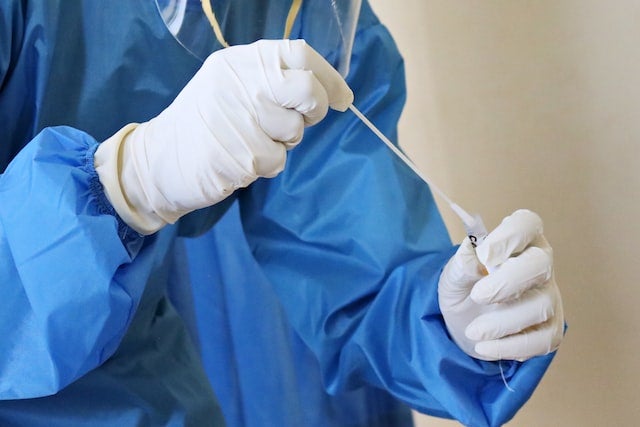
A group of scientists from the Singapore-MIT Alliance for Research and Technology (SMART), and Nanyang Technological University, Singapore (NTU Singapore) have developed a new Covid-19 test kit.
The scientists describe their new test as a cellulose pulled-down virus neutralisation test kit (cpVNT).
It is a neutralising antibody blood test designed to assess an individual’s immunoprotective profile against SARS-CoV-2 and its variants.
Unlike conventional Antigen Rapid Test (ART) kits, which measure viral proteins produced during a Covid-19 infection, the new rapid test is a serology test that measures antibodies.
It uses a drop of finger-prick blood to detect the levels of neutralising antibodies against SARS-COV-2 and its variants and gives results within 10 minutes.
The test reveals the level of neutralising antibodies and informs a person’s eligibility for a booster taken, along with precautions about potential transmission.
Featuring a paper-based assay, coated with chemicals that bind to antibodies in the blood sample, the test offers a low-cost option with up to 93% accuracy.
The joint team was led by SMART’s Antimicrobial Resistance (AMR) Interdisciplinary Research Group (IRG) and NTU’s School of Biological Sciences.
The team collaborated with Singapore’s National University Hospital (NUH) and National Centre for Infectious Diseases (NCID), and the Massachusetts Institute of Technology (MIT).
SMART AMR co-lead principal investigator professor Peter Preiser said: “Our team’s work in the development of a rapid test kit has given us valuable insights into vaccine effectiveness and protection longevity.
“Our study proves that our new test kit can be a powerful tool, allowing healthcare organisations to screen people and determine their vaccination needs, especially against the current and upcoming variants.
“This will help allay some people’s fears that they will be ‘over-vaccinated with a booster’, since the results will inform them accurately if they are well-protected against Covid-19 or not.”
Singapore’s National Research Foundation (NRF) provided the funding support, under its Campus for Research Excellence and Technological Enterprise (CREATE) programme.
In addition, Singapore’s National Medical Research Council (NMRC) funded the project under its Covid-19 Research Fund, and National Health Innovation Centre (NHIC), under its Covid-19 Gap funding grant.






